Best Bakeries in Budapest
Budapest’s bakery scene is a delightful blend of old-world charm and modern artisan flair, where flaky croissants meet rustic sourdoughs. While Hungary is better known for paprika and palinka, its capital city is quietly kneading its way into the upper crust of the European pastry scene.
Whether you’re chasing sourdough perfection, chasing the buttery ghost of your Paris trip, or simply chasing carbs (respect), Budapest has the bakery for you. Here’s our list of the best bakeries in Budapest;
Please Download Our Mobile App here.
Artizán Bakery
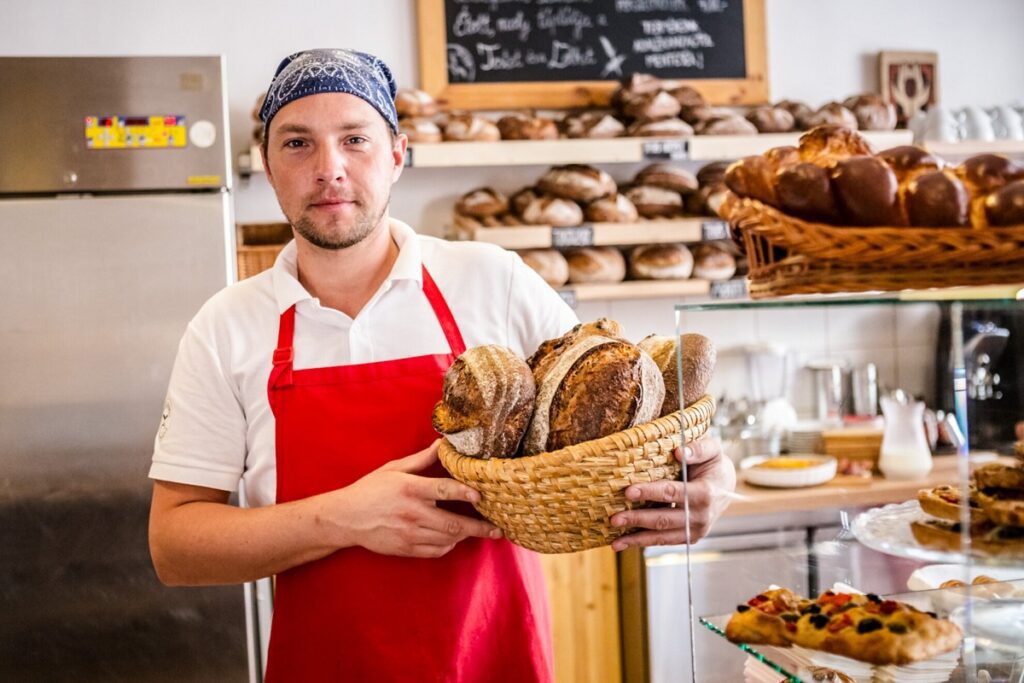
Artizán Bakery has quietly but confidently reshaped Budapest’s baked goods landscape since opening in 2015. It’s spearheaded by Gergő Fekete, a master baker with experience from across Western Europe. Artizán offers a refreshing departure from the city’s many uninspired bakery chains and mass-produced pastries.
Known for its sourdough breads and exceptional morning pastries, the bakery blends tradition with modern flair. Here, you’ll find Hungarian staples like pogácsa, rich chocolate-swirled kakaós csiga, and soft yeast-raised Buchteln filled with plum jam and túró. Artizán also surprises with seasonal specialties and cardamom-scented creations that wouldn’t be out of place in Copenhagen.
Their long-fermented sourdough loaves are as flavorful as they are artfully rustic. And for those with an eye for architecture, the bakery sits just across from one of Budapest’s most remarkable buildings like the Postatakarékpénztár.
Arán Bakery
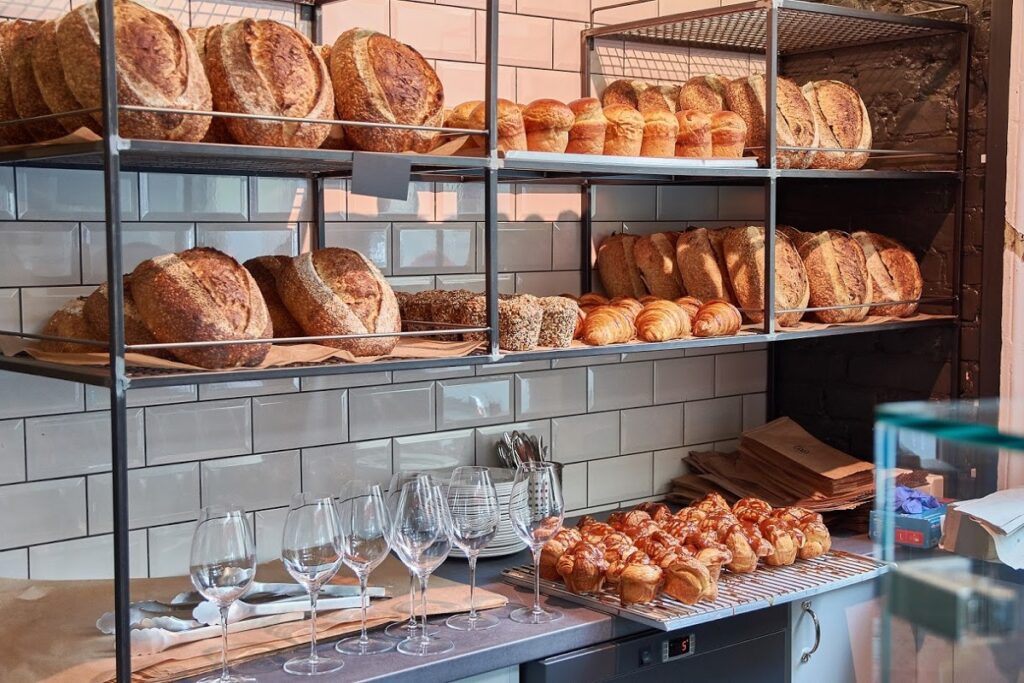
Located Budapest’s vibrant Jewish Quarter, Arán takes its name from the Old Irish word for “bread.” Run by a couple, Kinga and Attila Pécsi, Arán has become a staple for sourdough lovers in Budapest. The couple lived in Ireland for a decade before moving out here to start the business.
It was there that Kinga honed her skills, and it shows in every loaf that comes out of their ovens. Whether it’s whole wheat, rye, or white, the breads boast a robust character and the subtle tang of true long-fermented sourdough. While the bakery is clearly rooted in bread-making, their pastry game is no afterthought.
Morning regulars know to arrive early for the cinnamon bun—light, moist, and just sugary enough to qualify as dangerous—since it often sells out first. On Fridays, the shelves feature kalács, a sweet braided bread reminiscent of challah and perfect for weekend breakfasts.
Butter Brothers
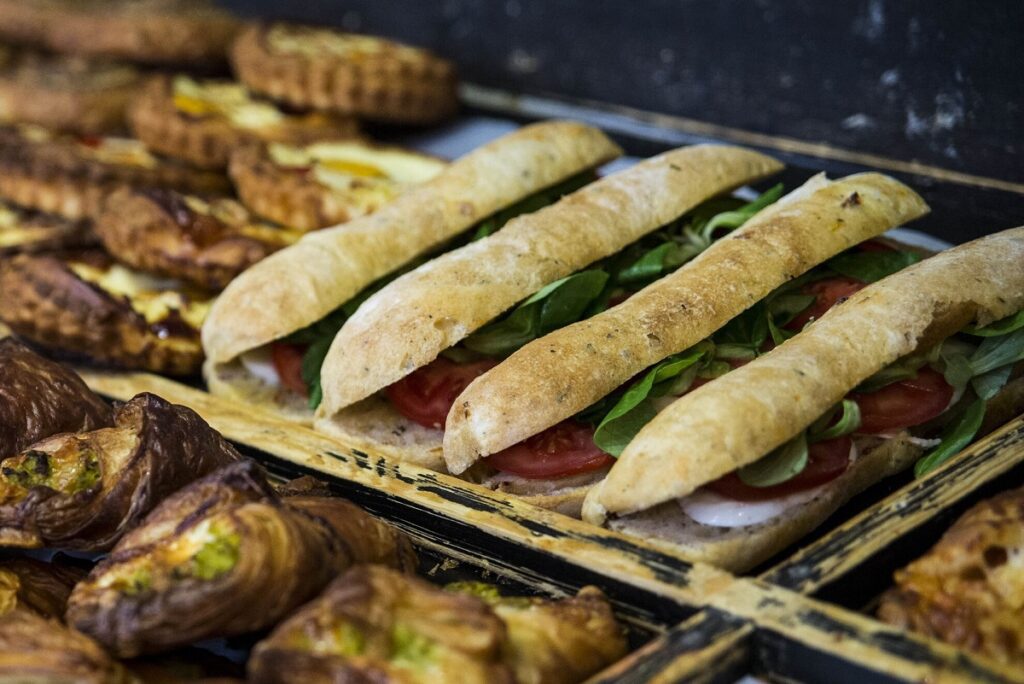
Tucked away on a quiet side street in Budapest’s District 9, Butter Brothers has been quietly earning its place in the city’s bakery scene since 2012. This neighborhood gem continues to serve up hearty whole wheat loaves, flaky croissants, and the ever-popular kakaós csiga, a Hungarian chocolate roll.
Its low-key location keeps the vibe refreshingly local, drawing in nearby residents and Corvinus University students looking for a satisfying bite. While newer bakeries may grab more headlines, Butter Brothers remains a steady, delicious favorite for those who know where to look.
Pékműhely Bartók

Tucked along the lively Bartók Béla Boulevard on the Buda side, Pékműhely Bartók quietly champions the art of honest baking. Their guiding philosophy—that good bread needs nothing more than quality flour, water, salt, sourdough, and a touch of love—says everything about their approach.
Instead of distractions, the spotlight stays on the oven’s daily offerings, most notably the whole wheat sourdough. This rustic loaf has a satisfyingly crunchy crust and a tender interior riddled with airy pockets. But it’s the morning pastries that inspire true devotion.
Locals and visitors alike have been known to cross the city just for a taste of their beloved kakaós csiga, a spiraled chocolate roll that’s both nostalgic and indulgent. Other favorites include pillowy papucs pastries stuffed with cottage cheese, poppy seeds, or cherries—simple pleasures done exceptionally well.
Három Tarka Macska

Három Tarka Macska is a chic neighborhood bakery tucked into the elegant streets of Újlipótváros, a well-heeled district just north of Budapest’s Parliament building. The scent hits you before the door even swings open: freshly baked sourdough, hearty whole wheat and rye loaves, glossy brioches, and pillowy rolls.
While this bakery leans heavily toward takeaway, it also offers cozy sit-down options like omelets and generously filled sandwiches. Locals frequent this spot not just for the quality, but for the comfort it brings. If there’s one thing you absolutely shouldn’t skip, it’s the túrós batyu. This buttery, flaky pastry is stuffed with sweet-tangy cottage cheese that many swear is the best in all of Budapest.
Villa Bagatelle
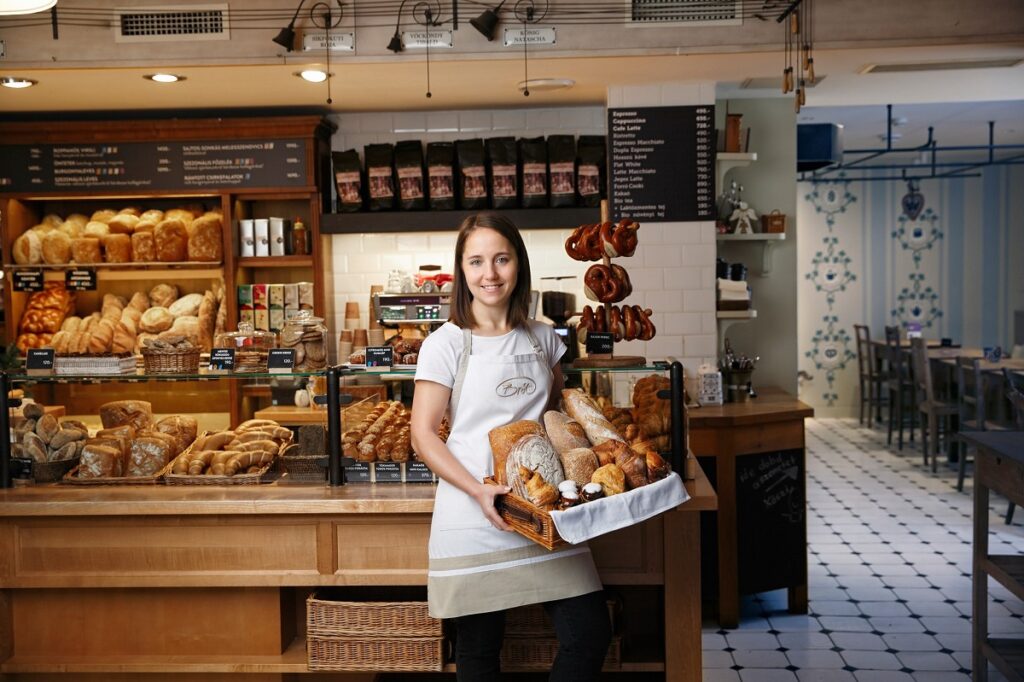
Tucked away in the verdant hills of District 12 on the Buda side, Villa Bagatelle is a refined breakfast destination that doubles as a social hub. This elegant spot offers a morning menu built around expertly prepared egg dishes, hearty frankfurters, and buttery breakfast pastries that are as stylish as the clientele.
Downstairs, a separate bakery provides fresh breads and sweets to go, ideal for those not settling in for a leisurely brunch. Though just a 15-minute ride from downtown Pest by public transport, don’t be surprised if you’re the only one who arrives by bus—the valet line says it all.
Freyja
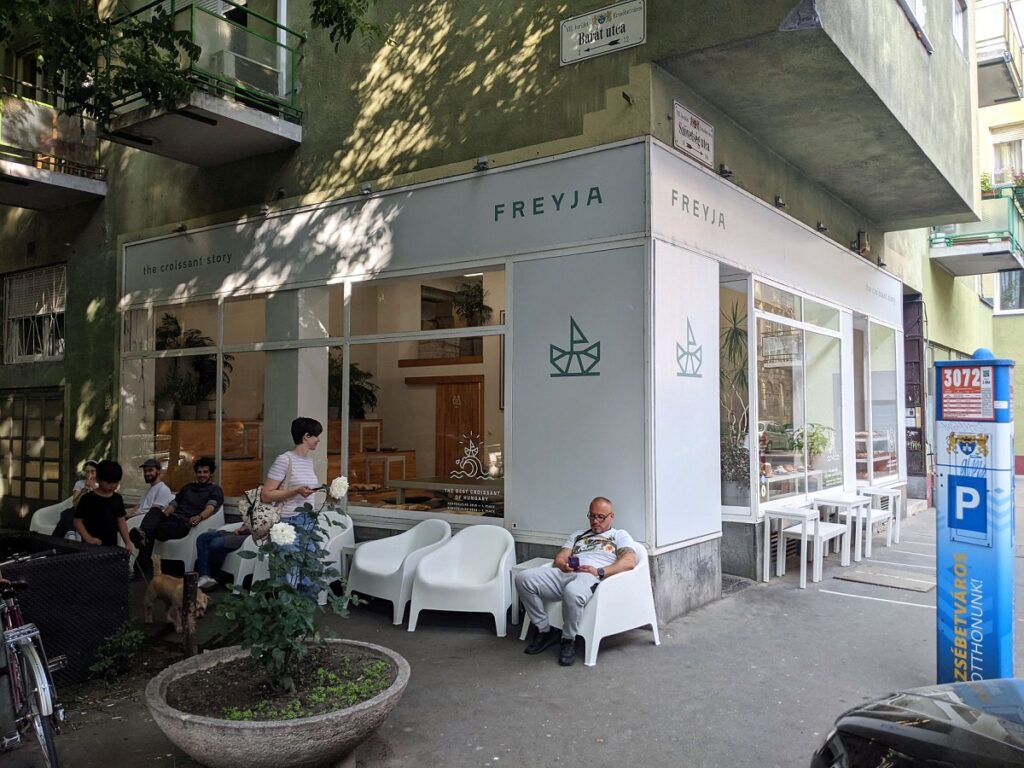
Freyja bakery is the kind of place where Budapest briefly forgets it’s in Central Europe and pretends it’s lounging in East Williamsburg. This ultra-hip spot draws a crowd who appreciate a good concrete wall and clean lines almost as much as a laminated dough. The main attraction? Oversized, unapologetically indulgent croissants that are as rich, flaky, and buttery as they come—arguably the best in the city.
Newcomers are often steered toward the pistachio cream croissant, a lavish green cloud of pastry engineering that’s more sculpture than snack. Prices match the drama, but so does the flavor. With expertly brewed new-wave coffee and a cool, minimal space that invites lingering, Freyja offers a full sensory escape.
Conclusion
The truth? You don’t go to Budapest to avoid carbs. You go to throw yourself at them willingly, with icing sugar on your shirt and zero regrets. These bakeries aren’t just stops—they’re edible postcards, flour-dusted portals into a city where history is layered like strudel and rebellion tastes like a salted butter roll.




